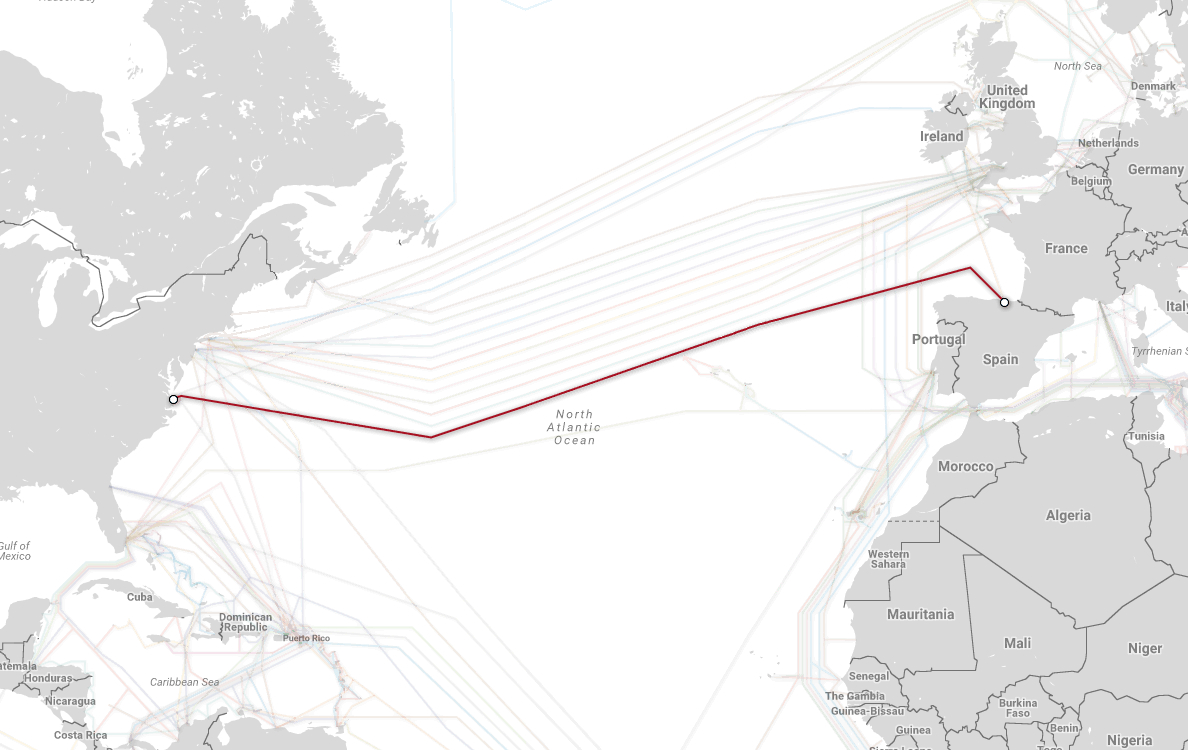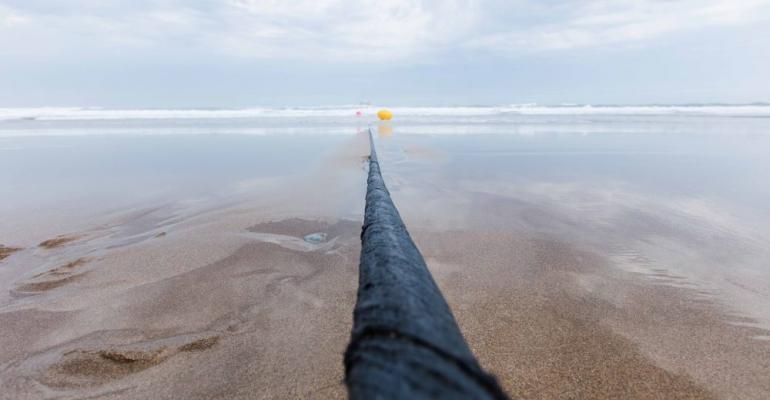Construction of the new high-capacity transatlantic cable landing on the shores of US and Spain, funded by Facebook, Microsoft, and Telxius (subsidiary of the Spanish telecommunications giant Telefónica), has been completed, the companies announced Friday morning.
It is the highest-capacity cable ever to have crossed the Atlantic, according to Microsoft, and represents a recent shift in the balance of power in the submarine-cable industry. Traditionally, transcontinental cables have been funded by telco consortia, who would then sell capacity on those systems to customers like Facebook and Microsoft. Lately, however, skyrocketing demand for global bandwidth has driven the largest of those customers – among them Alphabet’s Google and Amazon Web Services – to participate in funding the construction projects, which cost hundreds of millions of dollars.
The cable, called Marea (Spanish word “tide”), is more than 4,000 miles long and can transmit up to 160 terabits per second, which is about 16 million times faster than the average home internet connection and enough to stream 71 million high-definition videos at the same time, Suresh Kumar, corporate VP of Microsoft cloud infrastructure and operations, wrote in a blog post.
Photo gallery of the cable's installation and landing in Virginia Beach, Virginia
International network bandwidth and traffic have been growing quickly, although the growth rate has been declining in recent years, according to the latest Global Internet Geography report by the telecommunications market research firm TeleGeography, which came out last month.
Still, international bandwidth and traffic grew at an annual rate of more than 30 percent between 2013 and 2017. About 196 Terabytes per second of new international internet capacity was added in that time period, bringing global capacity to 295 Tbps. The numbers don’t include domestic network routes.
Marea’s capacity is about 1/15th of that total, estimated before the new cable came online.
The cable lands in Virginia Beach, Virginia, on the US side, and in Bilbao, Spain, the first cable to land in these two locations. Virginia Beach is about 230 miles south of Ashburn, Virginia, the largest (and growing) data center market in North America, and possibly the largest in the world.

MAREAHyper-scale cloud users: Facebook, MicrosoftRFS: Q1 2018Cable Length: 6,600 kmOwners: Facebook, Microsoft, TelefonicaLanding Points:Bilbao, SpainVirginia Beach, Virginia, United StatesSource: www.telegeography.com
Four Microsoft Azure cloud data centers are in Virginia, and Facebook leases data center space there as well. The nearest Facebook-owned data center to Virginia Beach is about 400 miles northwest, in Forest City, North Carolina.
Another submarine cable, owned by Tata Communications, connects Bilbao to the UK, and from there back south, to Portugal, from where cables linking Europe to Africa and the Middle East are accessible, according to TeleGeography’s Submarine Cable Map.





